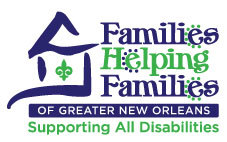
Everyone likes to have good friends, and take part in activities and hobbies that make life fun. You might like sports, music, art, or riding horses. Knowing how to act properly and how others may act will help you be confident about fitting in while still being yourself.
Friends are important for many reasons. Friends support each other and are willing to see things from the other’s point of view. They help you with things and give you advice when you need it. Friends choose each other and remain close during the good times and the not-so-good times. They can do things with you and just make any day more fun.
Your friends shouldn’t just be other people with disabilities. Friendship should exist between people with and without disabilities. If you don’t have a good friend, you need to look for things to do where you can meet new people. What types of events happen in your area where you can meet new friends? Think about joining a club or community group. You could attend a community event like a concert. You might find a place to volunteer to do something you enjoy. There are classes or groups through the library where you could meet to learn new things. Don’t forget that you can make friends where you work, or get together with old friends you may not see much anymore.
While each friendship is unique, there are some shared ideas and expectations about what friendship means. These include:
Mutuality – You and the other person want to be friends. You can’t force a friendship, it must be voluntary and a mutual desire of two people.
Commitment – Both people in a friendship have certain obligations to each other. If you want to have a good friend, you need to be a good friend. You commit to staying in touch, being there for each other, and working it out if you each want to do different things during your together time.
Privacy – Friends should be able to connect on a level where they can share confidential things with each other and expect it to stay between them.
Occasional Limitations – In general, friends don’t place limits on each other. But some friendships end due to occasional snags. For example, you have a new friend you talk to every day. One day the friend tells you they can’t talk to you because they have something else they need to do. You need to honor this request. It doesn’t mean they don’t want to be your friend. It just means they have something else going on and can’t talk to you. But if you keep calling them on that day asking them to talk, that friendship might die before it has a chance to thrive.
Siblings and Family Relationships
The seeds of sibling and family relationships start sprouting from the time you are born. You will watch how each family member interacts with each other. You will also notice when you are included or excluded from family experiences. Your family should be involving you in age-appropriate activities and experiences on a regular basis. This creates memories that provide siblings with future opportunities to bond. Even if these activities or experiences aren’t something you excel at, it’s still important you are given the opportunity to participate. Not everyone is good at everything.
Families should regularly seek out opportunities to nurture sibling or family relationships. But families should respect you as a person with a disability and ask you what you’d like to do too. One day your parents will no longer be living, and your siblings will be your closest family members. One of them may become your primary caregiver or support person. You will want to be part of that decision, and you will want someone you have a good relationship with. It’s important that everyone understands the expectations in these relationships, but equally important is everyone enjoys spending time with each other.
Intimate Relationships
One day you might meet a new friend and really like that person a lot. You may want that person to be a boyfriend or girlfriend. You may even decide you want to marry them. These are often tough topics to discuss with your parents. Why? It may be partly because you are their child and partly because you have a disability. Let’s face it: most parents aren’t comfortable talking about these things with their typical children. Throw a disability in the mix; they may want to avoid the topic completely.
The day your parents realized you had a disability, they knew it was their job to keep you healthy and safe. They may have also been told all the things you wouldn’t be able to do. They might have even mourned the life they had wanted you to have and, at some point, adjusted their goals for you. But here’s the thing: parents have often been misled about what their children could accomplish. So have patience with them and help them understand how much you want to fall in love like everyone else.
To be in a romantic relationship, you need to be somewhat mature. Not everyone can handle that. And you don’t have to be a certain age to be ready. You just have to have your mind and heart on the right track. If things don’t work out and you break up, it isn’t always because of your disability. Lots of people without disabilities date and break up. Sometimes two people just aren’t right for each other.
If your parents don’t feel right talking about dating and marriage and sex with you, find another trusted family member or caregiver who does. Learning about these things is important, and you need to have someone you trust to talk to and ask questions. You should also always feel comfortable talking to your doctor and asking for resources.
How do you feel about yourself? Do you like yourself and feel confident? Research shows that people that have a low self-image tend to be very risky in relationships. You need to know what can happen if you engage in risky sexual behavior.
Resources
8 Ways to Make Friends When You Have a Disability
Join the Families Helping Families Hangout Group – Email Steven at snguyen@fhfofgno.org or call 800.766.7736
The Key to Finding Friendship When You Have a Disability
Love, Dating, Relationships, and Disability
Online Dating When You Have a Disability
Breaking Past Fears of Dating
Updated on 8/9/2023
